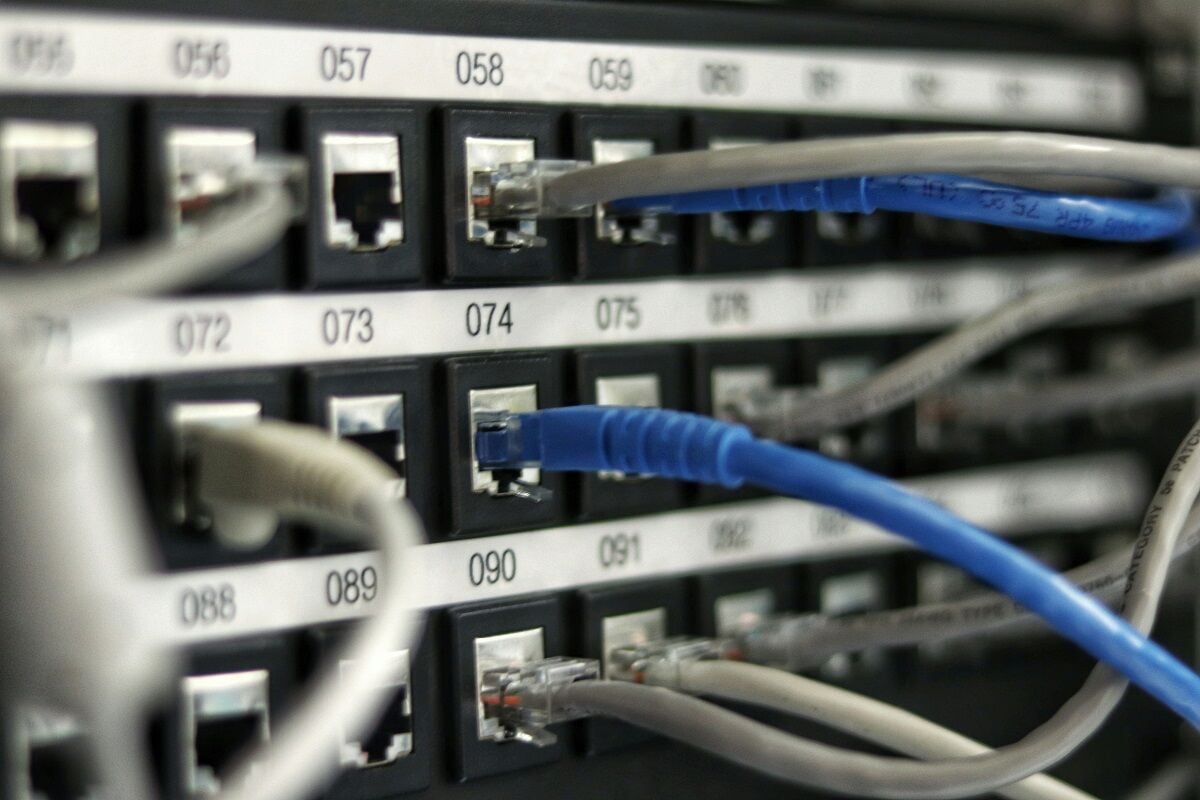How to keep your network secure

In the era of pervasive digital connectivity, embarking on an excursion to the tropical haven of Thailand does not imply abandoning your digital trace. Maintaining connectedness during travels is a contemporary indulgence; however, it is not devoid of risks. Ranging from unprotected WiFi networks to online banking, your private data could potentially be exposed to cybercriminals.
This composition will explore the privacy and security threats you encounter while appreciating the Land of Smiles. The protection requirement extends beyond your physical presence; in our interlinked atmosphere, online threats hold tangible reality as offline hazards. So, irrespective of whether you are a habitual globe-trotter or an infrequent voyager, it is imperative to equip yourself with a critical understanding of digital security.
We’ll provide practical tips to help keep your information safe, discuss multi-layered protection, and even explore how you can maintain your device’s performance while ensuring complete privacy. So, stick around to fortify your online defences for a worry-free Thai adventure.
Understanding the security landscape in Thailand
Staying cyber secure in Thailand, or any other country, becomes imperative when considering the increasing threat of cyber crimes and network security breaches. This section provides an overview of the digital security environment in Thailand, discussing common online threats and essential legal considerations. Additionally, it emphasizes the importance of privacy awareness when striving to keep your network secure. The given content is aimed at helping you understand the online threats prevalent in Thailand.
Common online threats and legal considerations
In the geographic locale of Thailand, the integrity of your technological device may be compromised by numerous online adversities such as malware, spyware, and adware. Additional sophisticated threats encompass ransomware, Zero-Day exploits, rootkits, and further spyware, which all place your data and privacy at significant risk. Superior internet security tools such as Bitdefender Internet Security provide stringent protection against an array of electronic threats, earning renowned accolades such as ‘Product of The Year’ from reputable AV-Comparatives. The recognition and awareness of potential system vulnerabilities is paramount for maintaining device safety.
The importance of privacy awareness
Being privy to possible threats is the first step towards a safe digital journey. Besides, adopting practices like checking the viability of your search results, or the safety of links before clicking, considerably cuts down on risks. Bitdefender goes the extra mile by ensuring complete privacy while performing the majority of heavy scanning in cloud space, leaving your local resources untouched. It refrains from accessing the actual contents of your files and doesn’t store them in the cloud, relieving you of potential privacy intrusions. Another essential function for ensuring privacy includes using VPNs, which encrypt all Internet traffic, and maintain an anonymous online presence.
Essential security measures

In the digital landscape that constantly evolves, it’s paramount to keep your network secure, particularly in Thailand due to the increasing trend of remote work and heightened cybersecurity laws. Here’s how you can further magnify the security of your sensitive information and remain safe in the cyber realm.
The role of strong access control
Keeping a tight rein on who can access your information is a potent step towards maintaining robust information security. Access control, a critical element of cybersecurity, plays a pivotal role in managing privileges and the flow of sensitive data. In Thailand, this control feature ensures that only those with the necessary permissions can access specific information or resources. For instance, Role-based access control (RBAC), a popular strategy in Thailand, helps enforce stringent access control policies. It’s a streamlined system that allocates roles to users according to their responsibilities, issuing permissions in alignment.
Benefits of multi-factor authentication
It’s tempting to rely solely on strong passwords for security, but unfortunately, it isn’t sufficient. Multi-factor authentication, such as two-factor authentication, acts as an additional protective layer. It requires a second piece of information for logging into your account like an email code, fingerprint or a security key. This heightened verification level makes it significantly more daunting for cybercriminals to breach your device and data. Moreover, constant software updates offer another foolproof layer against potential threats.
Network configuration best practices

Continuing in our quest to keep your network secure, let’s delve into the world of network configuration and its best practices. This journey starts by establishing secure Wi-Fi and enhancing router security to create an impenetrable fortress that banishes all potential cyber threats.
Setting up secure Wi-Fi
Given that Wi-Fi is a primary access point for most network connections, you must take steps to secure it. Firstly, consider encryption. Encryption is a vital part of any Wi-Fi setup and most wireless routers come equipped with encryption features.
The four common Wi-Fi protection systems are:
-
Wired Equivalent Privacy (WEP)
-
Wi-Fi Protected Access (WPA)
-
Wi-Fi Protected Access 2 (WPA 2)
-
Wi-Fi Protected Access 3 (WPA 3)
WPA 2 and WPA 3 are recommended, being newer and more secure options. The older versions, WEP and WPA, are susceptible to brute force attacks, signifying the need for constant upgrades and the pros and cons of every decision.
Router security enhancements
Guarding your network doesn’t end with just setting up secure Wi-Fi – enhancing your router’s security is paramount as well. A technique that proves fruitful in repelling cyber attacks is the use of a VLAN, or Virtual Local Area Network. A well-configured VLAN can segregate your devices into different networks, hence reducing the risk of a single vulnerable device becoming an entry point for hackers to compromise your entire network. You could set up a VLAN to separate your IoT devices from your computers and smartphones.
Maintaining your network security

In Thailand, the rise in remote work calls for robust measures to keep your network secure. Here’s how you can do it:
Regular security audits
To maintain effective access control, regular security audits are vital. These audits enable you to identify vulnerabilities, gaps, and areas for improvement in your security system. With periodic assessments, organizations can ensure their access control mechanisms are robust, so data accessed from remote locations remains secure at all times.
Software and firmware updates
Another critical aspect of network security is keeping your software and router firmware updated. Outdated firmware often carries vulnerabilities, creating an open field for hackers. So, make it a priority to check for firmware updates regularly – and don’t just stop at your desktop and laptops, ensure your phones, tablets and any other devices connecting to your network are also current. The most effective way to do this is to visit the vendor’s support website for the latest updates on your router model. This measure helps to close any possible loopholes that could potentially be exploited by unauthorized users.
Using virtual private networks (VPNs)

In Thailand, VPNs secure remote desktop protocols paired with other encryption technologies. These play a pivotal role in securing remote access and protecting data against unauthorised interception or tampering. But let’s dive a bit deeper, shall we?
Why VPNs are crucial in Thailand
VPNs boast significant importance in Thailand, particularly for remote workers seeking to keep their network secure. First, VPNs offer a level of security that shields your transmitted data. Your data transits through an encrypted tunnel, thereby preventing hackers, viruses, and malware from intercepting it. VPNs help you unblock geographically restricted content. For instance, if you have a Netflix US account, but find yourself in Thailand, there is a peculiar barrier you’d come across – you only get access to Thai Netflix library. Insert VPN here. When you use a VPN that routes your traffic through a US server, Netflix identifies you as a US subscriber, unlocking access to the US catalogue. This method paves the way to access a vast array of content beyond just streaming – think gaming, gambling sites, and more.
Choosing the right VPN service
While using a VPN in Thailand is perfectly legal, you ought to settle on a trustworthy provider. Utilising a reputable VPN ensures access to strong encryption and a solid privacy policy – consider top-tier VPN providers like ExpressVPN. Beware of free VPNs! These seemingly attractive services often log your data and serve up weak encryption standards. To keep your network secure, your choice of VPN service plays a considerable role. Look out for providers with a robust performance record against malware, adware, and ransomware.
Advanced protection strategies

To keep your network secure, advanced protection tactics become indispensable. Two fundamental components include firewalls and intrusion detection systems (IDS).
Implementing Firewalls
Firewalls are crucial in the establishment and maintenance of network security. By implementing next-generation firewalls, you’re one step ahead of various threats attempting to invade your network. These advanced firewall systems restrict unauthorized access while permitting outward communication. Noticeably, Fujitsu offers these latest firewall systems, designed to secure web and email gateways while bolstering intrusion detection and prevention plans. Furthermore, they’re also effective for data loss prevention concerning networks and emails.
Intrusion detection systems (IDS)
IDS, notably, play an essential part in network security. A proactive measure, they monitor for suspicious activity on your network and generate alerts for the same. IDS, such as those provided by Fujitsu, often work in tandem with firewalls to bolster your network’s defences. An extensively thought-out intrusion detection and prevention plan can secure your network against advanced malware, regulate network access controls, and effectively respond to denial-of-service threats. Implementing an IDS is a surefire way to ensure a solid first line of defence for your network’s security in Thailand.
When choosing a domain name for your blog, ensure it is memorable, concise, and relevant to your content. Avoid numbers and hyphens, check for domain availability, and aim for a .com extension if possible. Keep it simple to help with SEO and user experience.

































